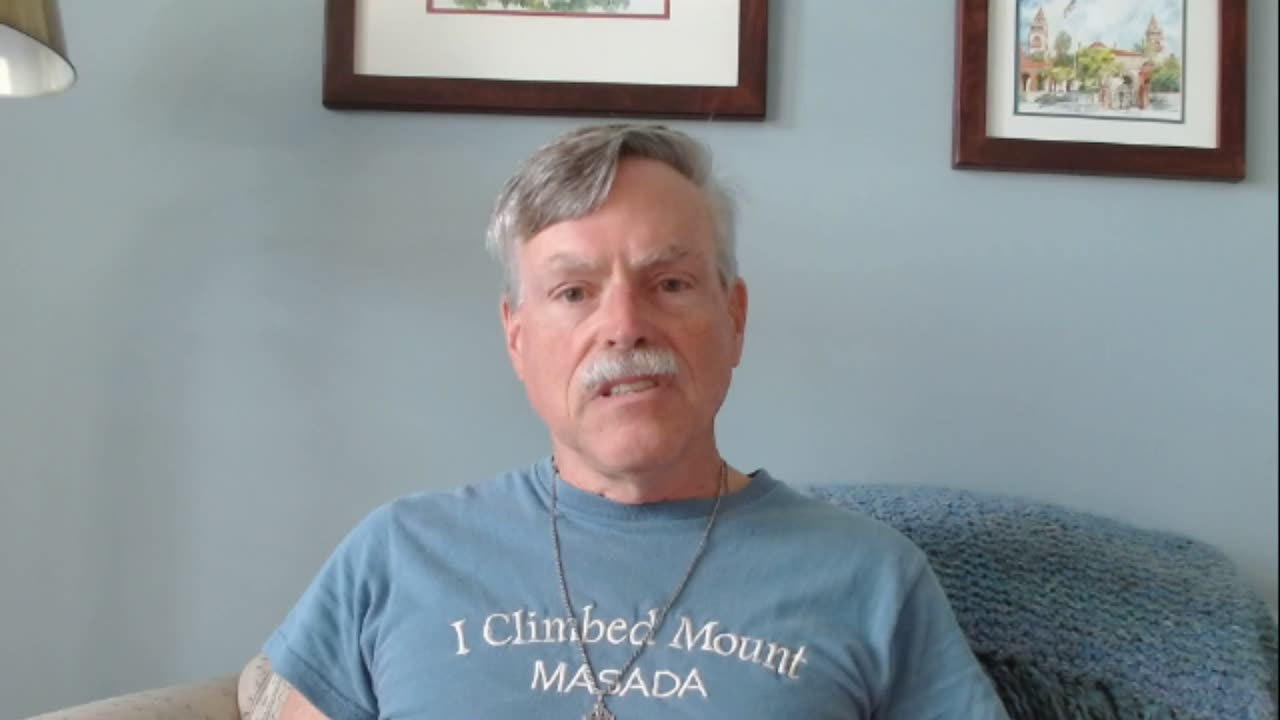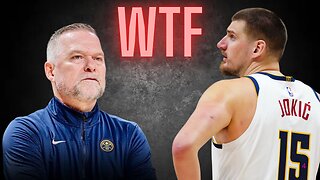Premium Only Content

Locals = https://sweethomesa.locals.com/
POPULIST REVOLT = https://populistrevolt.com/
NEW YORK—A federal judge in Manhattan ruled on April 19 that the U.S. House Judiciary Committee and its chairman, Rep. Jim Jordan (R-Ohio), can subpoena a former prosecutor who worked for Manhattan District Attorney Alvin Bragg.
District Judge Mary Kay Vyskocil, a Trump appointee, ordered that the congressional panel has the authority to become involved in the investigation of former President Donald Trump.
Specifically, Vyskocil granted—over Bragg’s objection—that Jordan could subpoena Mark Pomerantz, a former prosecutor in Bragg’s office, for his testimony related to the DA’s investigation of Trump.
Pomerantz could be subject to criminal liabilities by testifying in Congress, one of Bragg’s attorneys said during the hearing on April 19. Meanwhile, he also could be held in contempt of Congress if he doesn’t cooperate with Congress’s requests, his lawyers said in an April 17 filing.
The April 19 order came after an hour-long verbal clash between Theodore J. Boutrous Jr., counsel for Bragg, and House general counsel Matthew Berry in the Southern District Court of New York. It gave the Judiciary Committee’s lawmakers a victory in their legal clash with Bragg, which began when Bragg sued the committee, as well as Pomerantz, to stop the panel from enforcing the subpoena on Pomerantz.
In her order, Vyskocil ruled in favor of the congressional lawmakers, affirming their stance that the subpoena they issued on Pomerantz serves legitimate legislative purposes and is thus protected from lawsuits by the speech and debate clause of the U.S. Constitution. That clause protects federal legislators from lawsuits for actions that serve a valid legislative purpose.
“It is not the role of the federal judiciary to dictate what legislation Congress may consider or how it should conduct its deliberations in that connection,” the judge wrote in her ruling. “Mr. Pomerantz must appear for the congressional deposition.”
“No one is above the law.”
“Today’s decision shows that Congress has the ability to conduct oversight and issue subpoenas to people like Mark Pomerantz, and we look forward to his deposition before the Judiciary Committee,” Russell Dye, a spokesperson for Jordan, told The Epoch Times in a statement following the April 19 ruling.
Lawyers for Bragg wrote in a filing following the district court’s ruling that they intend to ask the Court of Appeals for the 2nd Circuit for “emergency relief” and delay the deadline for the subpoena issued to Pomerantz.
Update: On Thursday, hours before Pomerantz scheduled testimony to the committee, the Second Circuit Court of Appeals issued a temporary administrative hold on the subpoena’s return date to allow the court to review Bragg’s application for a permanent hold on the subpoena while the lower court’s decision is being appealed. The appeals court indicated that the administrative stay does not indicate the court’s position on the merit of Bragg’s case. The court instructed the parties to complete court filings on a permanent stay on the ruling on Saturday.
Judiciary GOP Takes on Bragg
Jordan’s probe into Bragg’s prosecution of Trump began two days after Trump announced on March 18 that he would be arrested. Jordan asked Bragg to provide documents about his “politically motivated prosecution” of a former president.
Then came Trump’s indictment on April 4. The former president was charged with 34 counts of felony falsifying business records. On April 6, Jordan subpoenaed Pomerantz to seek his testimony.
Pomerantz had pushed for an indictment against Trump in 2021 after leading a probe into the former president’s finances. He left the Manhattan district attorney’s office in February 2022 because Bragg initially decided not to pursue a criminal case against Trump. Pomerantz later released a memoir about the case.
In response to Jordan’s subpoena to Pomerantz, Bragg filed a federal lawsuit on April 11 seeking to nullify Jordan’s subpoena, which included an emergency request for a temporary restraining order on Jordan and an injunction to block the subpoena’s enforcement. The court ordered a hearing on the emergency request, leading to the April 19 hearing and the subsequent rejection by the court of Bragg’s request.
Bragg’s lawsuit is still “pretty much dead,” even considering the appeals court’s Thursday order extending the subpoena deadline, Michael Scotto, who worked 23 years as a prosecutor in the Manhattan DA’s office, told The Epoch Times in an email on Thursday. That is, he believes the lawsuit wouldn’t be able to prevent Pomerantz from testifying to Congress.
This is because Pomerantz revealed many details of his investigation of Trump in his book, “People Vs. Donald Trump,” which effectively waived his privileges from speaking to the information contained in the book, Scotto said. Another consideration is, he added, Pomerantz could invoke various privileges at the House hearing—which can be litigated if Congress finds his refusal to answer on privilege grounds was baseless—which decreases the likelihood of irreparable harm to Bragg’s case. Also, Pomerantz’s testimony would not significantly interfere with the criminal case because Pomerantz didn’t work on that case and isn’t currently working for Bragg, Scotto indicated.
Question of Congressional Authority
During the hearing, the House general counsel asserted that the committee’s subpoena to Jordan serves a valid legislative purpose and is therefore protected from any interference from the courts under the Constitution’s speech and debate clause.
Berry proposed two reasons for that claim.
First, he stated that Congress had introduced legislation that Pomerantz’s testimony could help inform. He cited a bill that, if enacted into law, would bar the use of federal funds to investigate a sitting or former president (the Accountability for Lawless Violence In our Neighborhoods, or ALVIN, Act), as well as another that would allow Congress to remove of an action or prosecution against a former president (H.R. 2553).
Berry also stated that Congress is within its authority to examine whether “politically motivated” prosecutions of a former president would interfere with the duties of a sitting POTUS. For example, it might inappropriately influence a sitting president’s decision-making on policies, for the president may “fear” the posthoc prosecution by a local DA for a decision that may be unpopular to the people in the DA’s locality, Berry said.
Bragg’s attorney objected to those contentions. The committee’s subpoena, Boutrous said, exceeded congressional authority because it’s the judicial branch’s job—not that of Congress—to ensure that this ongoing prosecution is not “politically motivated.”
He said that the committee, in issuing the subpoena, intended to “disrupt” Bragg’s criminal case against Trump and that this action “encroaches” upon other branches of government—the New York Executive Department and the judicial branch.
Bragg’s attorney cited the Supreme Court case Trump v. Mazars, in which the high court ruled in Trump’s favor and stated that the congressional committees couldn’t subpoena Trump’s financial statements. The Supreme Court reasoned in that ruling that conducting a criminal investigation is a power of the executive branch and that Congress’s subpoena against Trump violates the principles of separation of powers.
Boutrous says the Supreme Court ruling applies to this case because this case also raises significant separation of powers questions.
In her April 19 ruling, Vyskocil affirmed Congress’s position that the subpoena serves a valid legislative purpose.
Furthermore, she rejected Bragg’s reasoning that Trump v. Mazars applies to the case.
“The congressional subpoena in Mazars was directed at materials pertaining to the sitting President of the United States,” Vyskocil wrote in her ruling.
“In contrast, here, the subpoena was issued to a private citizen who is no longer employed by any state government and who has written a book and spoken extensively about the subject matter of the congressional inquiry,” she wrote. “The Court is not persuaded that Mazars applies to this case.”
-
 LIVE
LIVE
Dear America
10 hours agoTrump Puts China On An Island, Brings Xi Jinping To His Knees + Tampon Tim Gets BOOED By Veterans!
4,145 watching -
 LIVE
LIVE
Wendy Bell Radio
4 hours agoTrump Wins Again
8,801 watching -
 1:26:51
1:26:51
JULIE GREEN MINISTRIES
2 hours agoLIVE WITH JULIE
108K116 -
 1:25:49
1:25:49
Game On!
17 hours ago $4.29 earnedThe Masters 2025 is HERE!
26.4K -
 LIVE
LIVE
Canada Strong and Free Network
1 hour agoCanada Strong and Free Network
119 watching -
 8:33
8:33
SKAP ATTACK
17 hours ago $2.28 earnedWhat Went Wrong With the Nuggets
28K4 -
 23:51
23:51
JasminLaine
16 hours agoCBC STUNNED Into Silence as Carney PANICS—Defends Bill C-69 and His Foreign Profits
26.8K22 -
 17:25
17:25
World2Briggs
13 hours ago $2.75 earnedThe Dark Reality Of Human Trafficking In The United States
21.7K11 -
 4:31
4:31
Mrgunsngear
15 hours ago $5.69 earnedBreaking: Kash Patel No Longer ATF Director! Replacement Has Been Named
25.5K16 -
 43:42
43:42
Esports Awards
23 hours agoAustinJohnPlays on Pokémon Card Collection & Evolution of YouTube | Origins Podcast #2
10.1K